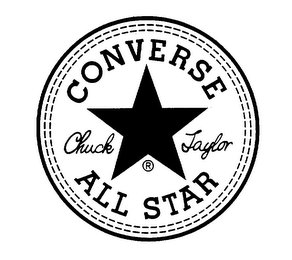Any questions?
Free initial assessment of your case
Attorney for trademark law Thomas Seifried has over 20 years of experience in trademark law and has also been a specialist attorney for intellectual property law ("Fachanwalt fuer gewerblichen Rechzsschutz") since 2007. He is an author of specialized books and has conducted many successful proceedings before courts and the trademark offices.
Contact us
Free initial assessment
Our initial consultation in trademark law is free of charge.
+49 69 9150760
Here you can send us your documents. We will treat your request strictly confidential.
EU and German trademark application
Trademark types, protectability, application strategies - What you need to know about a trademark application
Opposition proceedings before EUIPO and DPMA
What you need to know about opposition procedures before EUIPO and DPMA against the registration of a German trademark or an EU trademark
Declaration of invalidity and cancellation of trademarks at the EUIPO and DPMA
What you need to know about a declaration of invalidity and cancellation of a trademark at the EUIPO and DPMA
"Placing on the market" means "selling"
The term "placing on the market" in trademark law refers to the first sale: if the branded goods have been sold for the first time in the EU or the EEA with the consent of the trademark owner, the goods may be resold by anyone. The trademark rights are then "exhausted", i.e. the trademark owner can no longer prevent a resale in most cases. The right of the trademark owner to sell the goods for the first time should enable the trademark owner to "realise the economic value of his trademark" (ECJ of 30 November 2004 - C-16/03 - Peak Holding AB / Axolin-Elinor AB).
Simply offering is not sufficient for exhaustion
According to the case law of the European Court of Justice (ECJ), mere offering is not sufficient for the trademark owner to place it on the market. The goods must also have been sold in the EU or the EEA for them to be resold legitimately. Thus, if surplus goods have been resold to an item dealer previously offered in vain in the EU or EEA, they may not be resold readily. The decisive factor is where the goods are then sold to. Therefore, if surplus goods have been resold to a non-European item dealer, which was previously only offered in Europe and has remained, but has not been sold, they may not easily be resold in Europe.
Remainders, special items, returns and goods from dubious sources
Whether offers of residual and special items can be prohibited essentially depends on whether they were sold for the first time in the EU or the EEA by the trademark owner or with his consent. The decisive factor is where the goods come from and whether they have already been sold or whether they have only been offered, but are still available.
Goods from dubious sources - The case German Federal Court of Justice, judgement of 15.3.2012 - I ZR 137/10 - CONVERSE II:
Leisure shoes of the brand "Converse All Star Chuck Taylor" were offered by Metro. These were original goods procured by Metro from intermediaries in Slovenia and France. The action was brought by the exclusive licensee of the American trademark owner (Converse Inc.). The licensee claimed the shoes had never arrived in Europe with the consent of Converse Inc. The trademark rights are therefore not "exhausted", the offer infringes the trademark. Metro, in turn, claimed that the shoes had been delivered to Slovenia with the consent of the trademark owner. But Metro could not prove this. According to jurisprudence, in a trademark lawsuit, the person invoking exhaustion must also prove it. Since Metro was unable to do so, Metro was convicted of infringing the mark.
Offers of defective goods from dealer returns at discounters: Regional Court of Munich I, judgment of 6 March 2012 - 1 HK O 24878/11
The Regional Court Munich I even held a rescission of a sales contract for sports socks due to defects of the goods step by step against repayment of the purchase price as a placong on the market with the consent of the trademark owner. In this case, a purchase contract for several thousand brand sport socks had been rescinded due to alleged defects. The supplier had taken the socks back and refunded the purchase price to the trademark owner. The brand owner left the sports socks to the supplier without any restrictions. Then the socks reappeared at a discount store.
The Regional Court Munich I saw in this an effective placing on the market by the trademark owner. After all, the latter could have restricted resale by contract or insisted on destroying the socks. The trademark rights are exhausted. The trademark infringement action of the trademark owner was dismissed.
The judgment is likely to be false for several reasons. First, according to the case law of the European Court of Justice, a contractual restriction of resale cannot rule out an exhaustion effect anyway. However, the ECJ also expressly demands that the trademark owner sell the goods in order to avoid exhaustion. Exhaustion presupposes that the trademark owner can realise the economic value of his trademark. Without sale no exhaustion occurs (ECJ of 30 November 2004 - C-16/03 - Peak Holding AB / Axolin-Elinor AB). However, this was missing in the case decided by the Regional Court Munich I.
Nevertheless, in such cases, a trademark owner should insist on destruction of the goods. This is the only way to rule out brand-damaging resale.
Samples, test articles, free samples
Occasionally, sample goods also reappear at a discount store. Whether these offers infringe the trademark also depends on whether the trademark owner sold this product for the first time in the EU. If such sample goods are not intended for sale and this also becomes clear, e.g. by marking the articles as "not for sale" or "unsaleable", according to the case law of the European Court of Justice there is no first placing on the market with the consent of the trademark owner (ECJ, judgement of 12 July 2011 - C-324/09 - L'Oreal SA et al. / eBay International AG et al.; ECJ judgment of 3 June 2010, C-127/09 - Coty Prestige Lancaster Group GmbH / Simex Trading AG).
Offering such test or sample products would be an infringement of trademark law and also an infringement of competition in the form of a deception about the marketability of a product pursuant to § 3 para. 3 German Unfair Competition Act (UWG) in connection with the German Unfair Competition Act Annex ("blacklist) No 9.
Contractual resale restrictions are irrelevant for exhaustion effect
Exhaustion due to a first sale in the EU or the EEA occurs irrespective of whether the buyer is contractually limited in his resale or not. The exhaustion effect occurs irrespective of whether or not the trademark owner agrees to the resale of the buyer located in the EU in the EU or in the EEA. If, for example, in the case described above, the surplus goods are sold to a French item dealer instead of to EU or EEA countries and the dealer was prohibited from reselling them in EU countries in the purchase agreement, this is irrelevant for the occurrence of the exhaustion effect (ECJ, judgement of 30 November 2004 - C-16/03 - Peak Holding AB / Axolin-Elinor AB (Handelskompaniet Factory Outlet). The decisive factor is that it was sold to a dealer in France. However, the trademark owner cannot prohibit the resale in the EU of the goods sold to the French buyer.
Modification or deterioration of the goods in the event of resale and damage to reputation
However, the trademark owner does not have to accept every resale. In particular, if the condition of the goods deteriorates after the first placing on the market, the trademark owner does not have to tolerate this. For example, if textiles are offered dyed by the retailer, the trademark owner does not have to tolerate this (German Federal Court of Justice, judgment of 14 December 1995 - I ZR 210/93 - Gefärbte Jeans). However, it is not enough that the way in which the brand is resold can damage its reputation. Rather, the trademark owner must prove that this has actually happened. The resale of branded goods without packaging, for example, can therefore only be prohibited if it can be proven that such a resale actually damages the image of the goods and the reputation of the brand (see ECJ of 12 July 2011 - C-324/09 - L'Oreal SA et al. / eBay International AG et al.). This will rarely succeed in practice.
Consequences of "exhaustion": brand use also permitted in advertising
If the goods were placed on the market with the consent of the trademark owner, resale of the marked goods is therefore permitted. The principle of exhaustion also allows advertising for the products covered by exhaustion. The trademark may therefore also be used for these products in advertising, even if the dealer itself does not yet have the goods in stock (BGH judgment of July 17, 2003 - I ZR 256/00 - Vier Ringe über Audi).
No exhaustion for services
Exhaustion, however, can only occur for physical products. Exhaustion is ruled out in the case of services.
The principle of exhaustion applies throughout intellectual property law
The principle of exhaustion applies not only in trademark law (Sec. 24 MarkenG, Art. 13 of Council Regulation (EC) No. 207/2009 of 26 February 2009 on the Union trademark), but in all intellectual property law.
Example: The principle of exhaustion for Community Designs: Article 21 CDR
Author: Thomas Seifried, trademark lawyer Europe and trademark lawyer Germany
"Distinctive character" in trademark law
What does "distinctive character" in trademark law mean?


